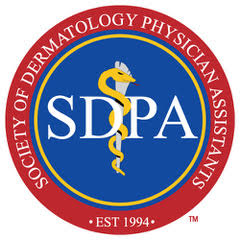Rachel Sammis-Falk, PA-C
Physician Assistant (PA)
Dermatology
Provide Feedback
UW Medical Center - Dermatology
University of Washington
Department of Dermatology
Seattle, Washington 98195-6524
Website
Department of Dermatology
Seattle, Washington 98195-6524
For an appointment, call
206-543-5290
About Rachel Sammis-Falk, PA-C
Rachel Sammis-Falk, P.A.-C. is a board certified physician assistant at the Dermatology Clinic at UWMC-Roosevelt. Rachel considers it an honor to be part of her patient's medical care and strives to provide the highest quality of care while helping her patients navigate today's complex medical system.
Sammis-Falk received her medical education a the University of South Carolina. From there, she joined the US Army and served three years on active duty caring for soldiers and their families at Joint Base Lewis McChord Sammis-Falk’s clinical interests include preventative medicine, skin cancer screening, and acne.
Sammis-Falk received her medical education a the University of South Carolina. From there, she joined the US Army and served three years on active duty caring for soldiers and their families at Joint Base Lewis McChord Sammis-Falk’s clinical interests include preventative medicine, skin cancer screening, and acne.
Patient Education Resources
Can I switch the biologic medications I’m using to treat my psoriasis?
Yes, you can switch biologic medications for psoriasis if one is not working effectively. Biologic medications are a class of drugs that target specific parts of the immune system that are involved in...
Yes, you can switch biologic medications for psoriasis if one is not working effectively. Biologic medications are a class of drugs that target specific parts of the immune system that are involved in...
How do I find out if I have skin cancer?
The best way to find out if you have skin cancer is to have a skin examination performed by a healthcare professional such as a dermatologist. They will visually inspect your skin for any suspicious m...
The best way to find out if you have skin cancer is to have a skin examination performed by a healthcare professional such as a dermatologist. They will visually inspect your skin for any suspicious m...
What are some treatments to get rid of warts?
The best treatment for warts will depend on the type and location of the wart, as well as the patient's overall health and preferences. Some common treatment options for warts include:Salicylic ac...
The best treatment for warts will depend on the type and location of the wart, as well as the patient's overall health and preferences. Some common treatment options for warts include:Salicylic ac...
What are the best sunscreens?
The best sunscreens are those that provide broad-spectrum protection, which means they protect against both ultraviolet A (UVA) and ultraviolet B (UVB) rays. They should also have an SPF (sun protecti...
The best sunscreens are those that provide broad-spectrum protection, which means they protect against both ultraviolet A (UVA) and ultraviolet B (UVB) rays. They should also have an SPF (sun protecti...
What is microneedling?
Microneedling is a cosmetic procedure that involves using a device with fine needles to create tiny punctures in the skin. The needles are typically between 0.5mm and 2.5mm in length, and are used to ...
Microneedling is a cosmetic procedure that involves using a device with fine needles to create tiny punctures in the skin. The needles are typically between 0.5mm and 2.5mm in length, and are used to ...
UW Medical Center - Dermatology

UW Division of Dermatology
We are proud to be one of the top teaching programs in the United States, offering training to
Residents, Fellows, Medical Students, and other medical trainees both within dermatology and from other specialities such as internal medicine, family medicine, oral biology and more.
UW Dermatology provides direct training in dermatology through our Residency Program, our Procedural Dermatology Fellowship, and through our Medical Student Clerkships.
